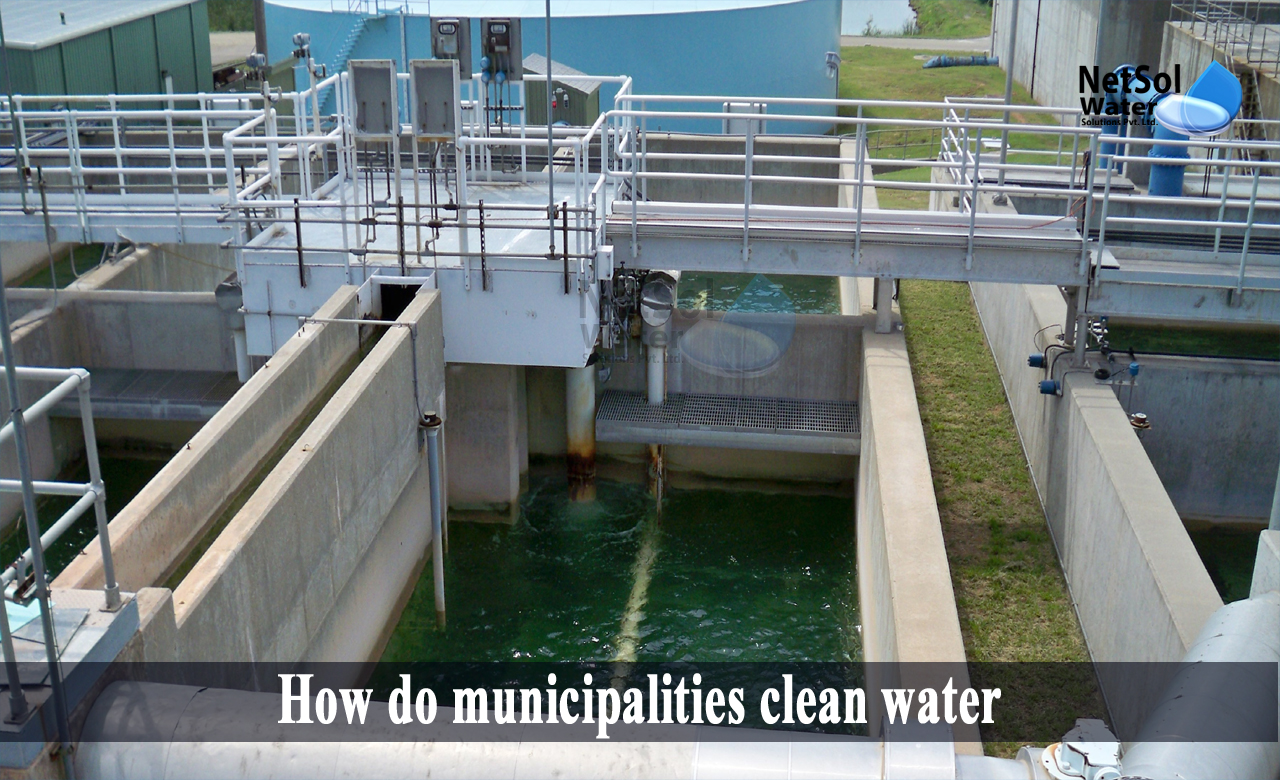For today's society, clean water is essential. The majority of Indians depend on clean water obtained from public sources, on a daily basis. Most likely, municipal water systems supply safe water to our community.
But, the question arises! How do municipalities clean water?
What is a municipal water system?
A municipal water system is a public water supply system that consists of a water treatment facility, storage structures including water tanks, towers, and reservoirs, as well as a water piping infrastructure for distributing cleaned water, to residential and business clients.
Municipalities require reliable sources of clean water. Multiple technological processes are used throughout the municipal water treatment process, to provide efficient municipal water systems.
Here is how municipal water systems ensure, that nearby residences and commercial establishments, have access to clean drinking water.
How do municipalities clean up the water?
Municipal water treatment involves three primary processes:
1: Primary treatment process
When water is gathered, including from supplies in streams and rivers, primary treatment takes place. The process gets rid of the physical impurities from water.
2: Secondary treatment process
In secondary treatment, fine particles and pollutants are removed using coagulation, filtration, and other methods. The primary treatment of water relies primarily on physical cleaning, whereas secondary treatment includes chemical processes and microorganisms.
3: Tertiary treatment process
At the municipal water treatment facilities, reverse osmosis, carbon treatments, disinfection, and pH adjustments are used, at the tertiary treatment stage.
Let’s discuss these stages of water treatment in detail.
A: First line of treatment or primary treatment
The first phase of municipal water treatment involves five procedures.
1: It is necessary to pump water from its source to the municipal treatment facility, using the right tools in a manner that does not taint the supply.
2: To eliminate objects like twigs and other garbage, screens and filters are utilized during the water screening stage.
3: In order to prepare for drought and allow for natural biological filtration, water can occasionally be kept in reservoirs.
4: Water softening is the process of treating water in locations with hard water, so that calcium carbonate will precipitate.
5: Pre-chlorination, the final step in this basic treatment phase, involves chlorinating the water that enters the plant, as part of the disinfection procedure.
B:Second line of treatment or secondary treatment
1: Solids can be filtered and dissolved using a variety of methods during the secondary treatment stage.
2: Whether this is a hard-water environment, the expense, and any necessary quality criteria, all will affect the municipal water treatment techniques that are employed.
3: By adding chemicals like aluminium sulphate or iron, which make all pollutants emit a positive charge, coagulation and flocculation function by clumping particles and solids together.
4: Coagulated particles are easier to filter out when they adhere to sand or rock, during water treatment or during settling. Coagulation agents are added and combined with water in a tank, with big paddles.
5: When the water supply is acidic, pH correction is used. To increase the pH level in this condition, lime or soda ash is used.
6: During the municipal water treatment process, flocculation and coagulation perform better, when the water is somewhat alkaline.
C: Third line of treatment or tertiary treatment
1: Disinfection is the final step in municipal water treatment and is essential for getting rid of germs. Prior to reaching the user, most municipal water systems must maintain a level of disinfection, in the supply for a predetermined number of days.
2: In municipal water treatment systems, water chlorination is the most often utilized kind of disinfection. To guarantee that the proper amounts of chlorination are maintained, this must be done by highly qualified technical engineers.
3: Another technique involves exposing oxygen to UV radiation and producing ozone. Although, it has been discovered to contain trace quantities of the bromate, it is excellent at killing protozoans.
Conclusion
To maintain good health of people, the authorities should provide a safe municipal water supply. It is essential that highly skilled engineers run your municipal water treatment plant, and ensure quality standards are upheld.
Choosing the best manufacturers of watertreatment plants in India
Netsol Water is one of the top producers of water treatment systems in India. At Netsol, we are committed to providing high-performingwater treatment plants, to assist municipalities with their water requirements.
We have earned a reputation for providing top-notch service and solutions, which will help our clients lower operating expenses and increase the life of their equipment. Every purchase of these systems includes free installation, manufacturer's warranty, and a 24-hour customer service, after the sale.
Netsol Water is Greater Noida-based leading water & wastewater treatment plant manufacturer. We are industry's most demanding company based on client review and work quality. We are known as best commercial RO plant manufacturers, industrial RO plant manufacturer, sewage treatment plant manufacturer, Water Softener Plant Manufacturers and effluent treatment plant manufacturers. Apart from this 24x7 customer support is our USP. Call on +91-9650608473, or write us at enquiry@netsolwater.com for any support, inquiry or product-purchase related query.



